Here at Art Scatter we’ve been keeping a keen eye on this year’s political races and the concurrent pommeling and puffing-up of patriotism that’s been accompanying them. In ordinary times we don’t pay a whole lot of attention to the sloganeering of the love-it-or-leave-it crowd. People wave their flags and spout their platitudes, and life pretty much goes on, unimpeded. But it seems such a hot topic as November 8 approaches that we decided to consult an expert on the subject, Dr. Samuel Johnson, the noted English poet, essayist, and lexicographer. Dr. Johnson is a devout Tory but possesses a sharp wit and a keen mind, and will rail against foolishness and chicanery wherever he believes he has found it. Even in the midst of a vicious election season, he is no blind slave to party loyalty.
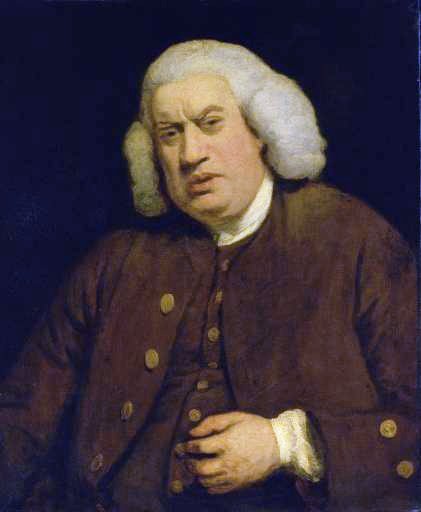
The good doctor, as it turns out, has been busy checking proofs for his essay “The Patriot,” in which he expounds upon this very topic, and so could not meet with us in the flesh. But he agreed to answer questions through his publicist, Mr. James Boswell. The arrangement seemed congenial, and so we submitted our queries. In due course the good Mr. Boswell returned Dr. Johnson’s replies, a few from the very pages of the essay he’s been preparing. Here is the result of our long-distance discourse.
*
Everybody’s talking about it, from presidential candidates to professional quarterbacks. And everybody seems to have a different idea about it. What exactly IS patriotism, anyway?
A patriot is he whose publick conduct is regulated by one single motive, the love of his country; who, as an agent in parliament, has, for himself, neither hope nor fear, neither kindness nor resentment, but refers every thing to the common interest. Continue reading Patriotic gore: Dr. Johnson on the political brouhaha in the Colonies
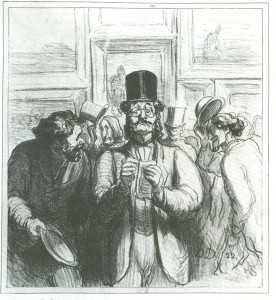 I have been a critic.
I have been a critic. It’s not often we call attention to a front-page newspaper story — after all, it’s right there on the front page; how could you miss it? — but today we’re doing just that. If you haven’t looked at it yet, please read
It’s not often we call attention to a front-page newspaper story — after all, it’s right there on the front page; how could you miss it? — but today we’re doing just that. If you haven’t looked at it yet, please read 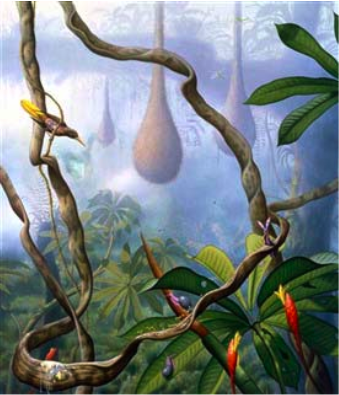
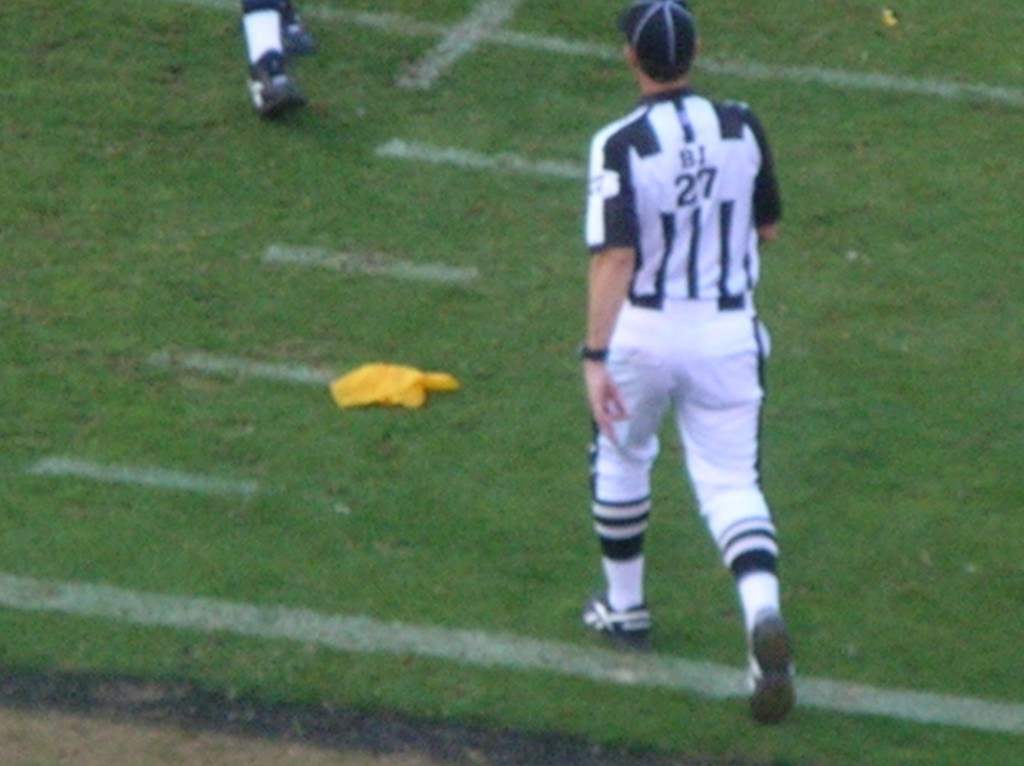
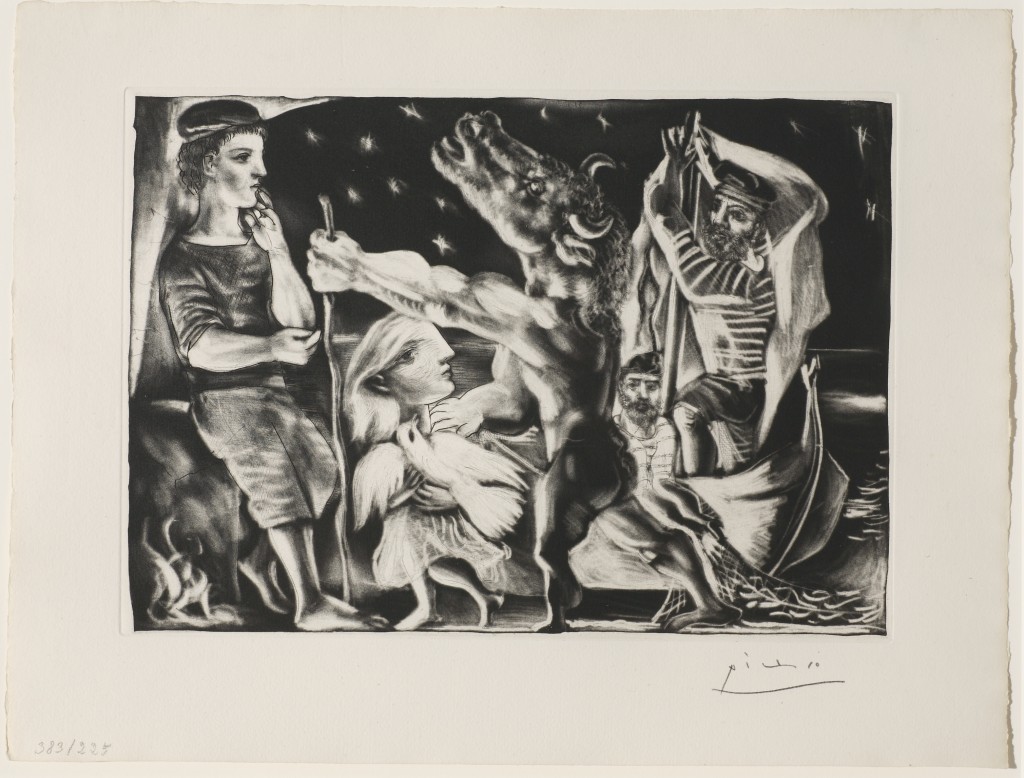
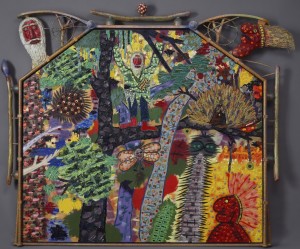 The review stands pretty much on its own, as an overview of what is an overview exhibition. Each of the exhibit’s six areas of concentration makes up its own statement, and each could have been reviewed rigorously on its own, but for most viewers — and for the museum itself — the larger picture is more important.
The review stands pretty much on its own, as an overview of what is an overview exhibition. Each of the exhibit’s six areas of concentration makes up its own statement, and each could have been reviewed rigorously on its own, but for most viewers — and for the museum itself — the larger picture is more important.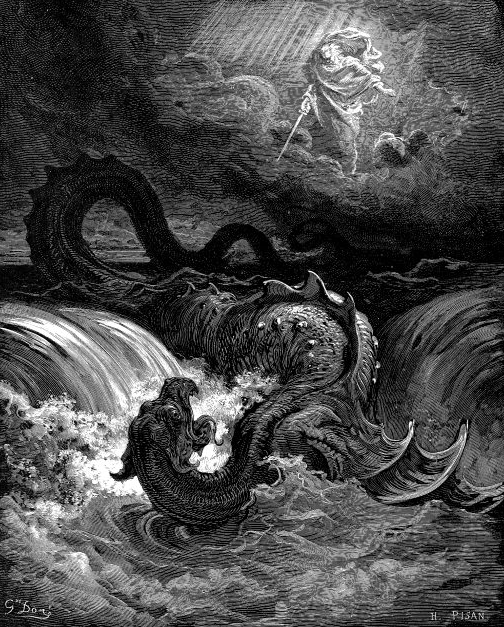 Then she took a batch of her rewritten stories, entered them into a prestigious professional competition, and strutted off with a passel of awards. That experience has made Mr. Scatter deeply suspicious of awards ever since. It also played a crucial role in the briefness of his own tenure at that particular less-than-august journal of news and opinion, a place that greeted him on his first day of work with a single rule, banning in-house sexual fraternization: Don’t dip your pen in the company ink. That the prize-winning “writer” was regularly inking and dipping with the publication’s owner did not help Mr. Scatter’s position, although it seemed to do wonders for her own.
Then she took a batch of her rewritten stories, entered them into a prestigious professional competition, and strutted off with a passel of awards. That experience has made Mr. Scatter deeply suspicious of awards ever since. It also played a crucial role in the briefness of his own tenure at that particular less-than-august journal of news and opinion, a place that greeted him on his first day of work with a single rule, banning in-house sexual fraternization: Don’t dip your pen in the company ink. That the prize-winning “writer” was regularly inking and dipping with the publication’s owner did not help Mr. Scatter’s position, although it seemed to do wonders for her own.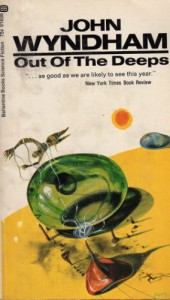 I did have an idea it’d be an interesting read, at the least from a historical and sociological perspective. Wyndham (full name John Wyndham Parkes Lucas Beynon Harris, born 1903, died 1969) was also the author of a novel called
I did have an idea it’d be an interesting read, at the least from a historical and sociological perspective. Wyndham (full name John Wyndham Parkes Lucas Beynon Harris, born 1903, died 1969) was also the author of a novel called 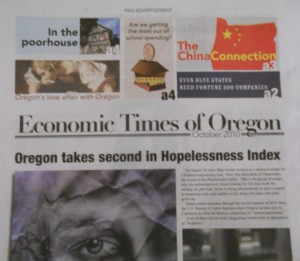 Economic Times of Oregon, it’s called, and the banner story on what may or may not be a continuing publication — it’s referred to as “Volume One, Issue 1” — is alarming, indeed: Oregon takes second in Hopelessness Index. Are things that bad? Well, Mr. Scatter just gives up.
Economic Times of Oregon, it’s called, and the banner story on what may or may not be a continuing publication — it’s referred to as “Volume One, Issue 1” — is alarming, indeed: Oregon takes second in Hopelessness Index. Are things that bad? Well, Mr. Scatter just gives up.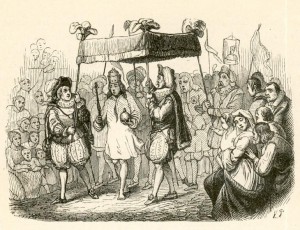 We were responding to
We were responding to